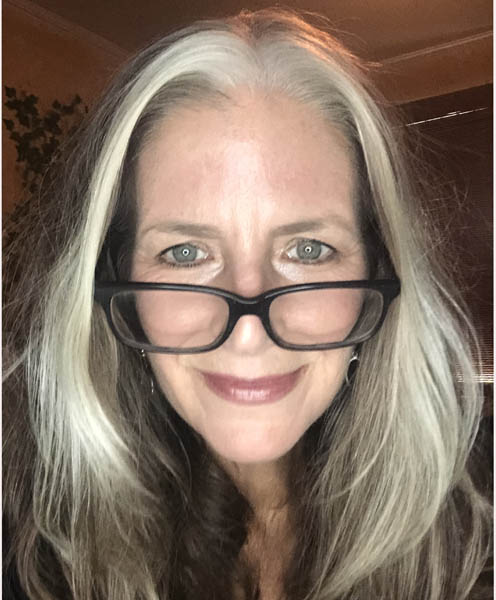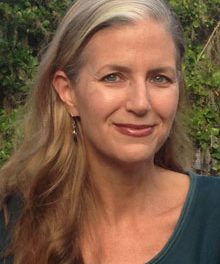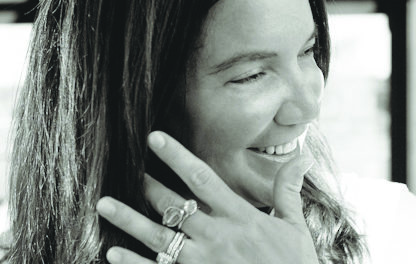I find myself with the awkward task of penning this column on Saturday, knowing it won’t be read until Wednesday, at the earliest. Such are the perils of writing for print. Alas, I’m an analog girl in a digital world.
I’m used to it by now. I’ve even found ways to work around it. I try not to be intensely topical, to write about subjects with a long shelf life, things that don’t change much. Or at least… not quickly.
But today, I am writing in pre-election times. You will read this post-election. Whatever happens with said election, things will have changed. I just can’t predict how at the moment.
But as one of my eloquent friends said at book club recently, “Whatever happens, it’s gonna be a sh*t show.”
I fear she’s right.
A few minutes ago, as I was scrolling Facebook – as one does when one is eager to avoid the task at hand – an old column appeared in my memories feed. Deep in procrastination mode, I clicked and read it. I’d written it just before election day, eight years ago, and as I read, I found myself both astounded and somewhat comforted. Why? Because I could have written it today!
(It’s always strangely reassuring to be reminded that the more things change, the more they stay the same.)
In this old column, I was contemplating a speech I’d been invited to give to the Exchange Club of Beaufort a few weeks later. They had asked me to talk about strategies for healing the nation after a horrific election season. (This was 2016, for those who don’t like math.) They wanted me to focus on post-election “unity and forgiveness.” A daunting challenge, to say the least.
As I read the column, a kind of nostalgic longing washed over me. Eight years ago, I’d never seen our country so divided, politically speaking. But I still believed that we, the people, could rise above those divisions.
Do I still believe that today? Depends on the mood I’m in when you ask. Or how much time I’ve spent on social media.
There’s a meme I keep seeing on Facebook that reads like this: “The worst thing about Trump’s presidency isn’t what we learned about him. It’s what we’ve learned about our family and friends.”
You know what? Stop posting that meme. Just stop. If you love your family and friends, stop publicly implying that they are beyond the pale because you don’t approve of their vote in a presidential election. They are the same people you’ve known and loved, but they do not share your experience of the world, nor do they share your brain. It’s quite possible they don’t share your news sources.
But they are still your family and friends. Look at those words and think about what they mean. Family and friends. Say whatever you want about Trump – or Harris – but stop trying to shame your family and friends out of the human community. Stop loving your principles more than your people.
I was downtown at First Friday last night, hobnobbing with a bunch of artists and arts supporters at various openings and receptions. Lots of people were wearing Kamala merch – hats, buttons, etc – and standing around in small groups, discussing their fears about the election. “I just don’t understand how anybody could…” was a phrase I heard over and over again. And I sympathized.
But, I do understand. Over the last couple of decades, I’ve made it my mission – some might call it my obsession – to understand why good people are so divided over politics. Emphasis on “good.” There’s plenty of research, and I’ve read most of it. Even in the age of Trump, it is possible to understand. But I also understand not understanding.
So today, I’m asking you to forgo understanding and just consider… forgiving. As of this morning, I have no idea who will win the election. All I know is that in the widespread absence of understanding, much forgiving will be necessary. On both sides.
In the column I wrote eight years ago, I asked, “How will we clean up the emotional battlefield when it’s all over? Who tends to the wounded when everybody’s bleeding?”
Having been tasked with giving a speech about forgiveness, I’d looked into the etymology of the word. From The Word Detective, I’d learned the following:
The root of “forgive” is the Latin word “perdonare,” meaning “to give completely, without reservation.” (That “perdonare” is also the source of our English “pardon.”) When the Latin “perdonare” was adopted into the Germanic ancestor of English, it was translated piece-by-piece, making the result what linguists call a “calque” (from the French “calquer,” to trace or copy), a literal transliteration. “Per” was replaced by “for,” a prefix that in this case means “thoroughly,” and “donare” with “giefan” (“to give”).
“So there you have it,” I wrote in 2016. “Though it’s taken on extra layers, ‘forgive’ – at its heart – means ‘to give thoroughly.’ Not to lend. Not to bargain over. To give. And not reservedly, not conditionally, but thoroughly. Forgiveness is not a transaction, not a quid pro quo, tit-for-tat, ‘you-scratch-my-back-and-I’ll-scratch-yours’ kinda thing. It’s an act of giving thoroughly. Giving up a grudge. Giving pardon. Giving good will. Thoroughly.”
In our current political climate, it almost seems like too much to ask. And to be perfectly frank, I’m not sure forgiveness is possible if we continue our laser-like focus on politics. Politics, for the most part, is a transaction – or a series thereof. It’s about wheeling and dealing, compromising and prioritizing. It’s about furthering various interests while leaving others . . . unfurthered. Most of all, politics is about arranging and rearranging power. Politics is not about forgiveness and it’s not about unity.
But we can be. Humans are political animals, but that’s not all we are. In a democratic republic, politics is a necessary evil. But it shouldn’t be an all-consuming obsession. When this election’s over, we must find healthier national pastimes if we’re to cultivate forgiveness and unity. Ax-throwing, perhaps? Or maybe we need a Great American Baking Show!
Downtown at First Friday last night, I was chatting with an artist friend about our rancid political scene, and she told me she was less worried about who would win the election than about what would become of us. The good people of the Divided States of America.
“You know,” she said (and I’m paraphrasing), “I simply can’t understand why anybody would vote for Donald Trump. But our neighbors are Trump people. And they really complicate matters by being such great neighbors. Always showing up when we need help. Always going above and beyond.”
People are always “complicating matters” like that, aren’t they? Because people are complicated. It’s a truth worth remembering as we move forward together, post-election.
Maybe the most important truth.






As always, I wonderful read.
We’ve ALL experienced loss of relationships due to the political climate the past ten years. I agree with Margaret… it is time to put the past exactly there – in the past. Forgive and let’s move forward and remember what is most important (or what SHOULD be most important) to us — family, friends, and all the people in our lives. Relationships are difficult, and we are all different. I choose the path of looking at the positives and forgiving!
Great column, Mrs. Evans!
Brian Rushing